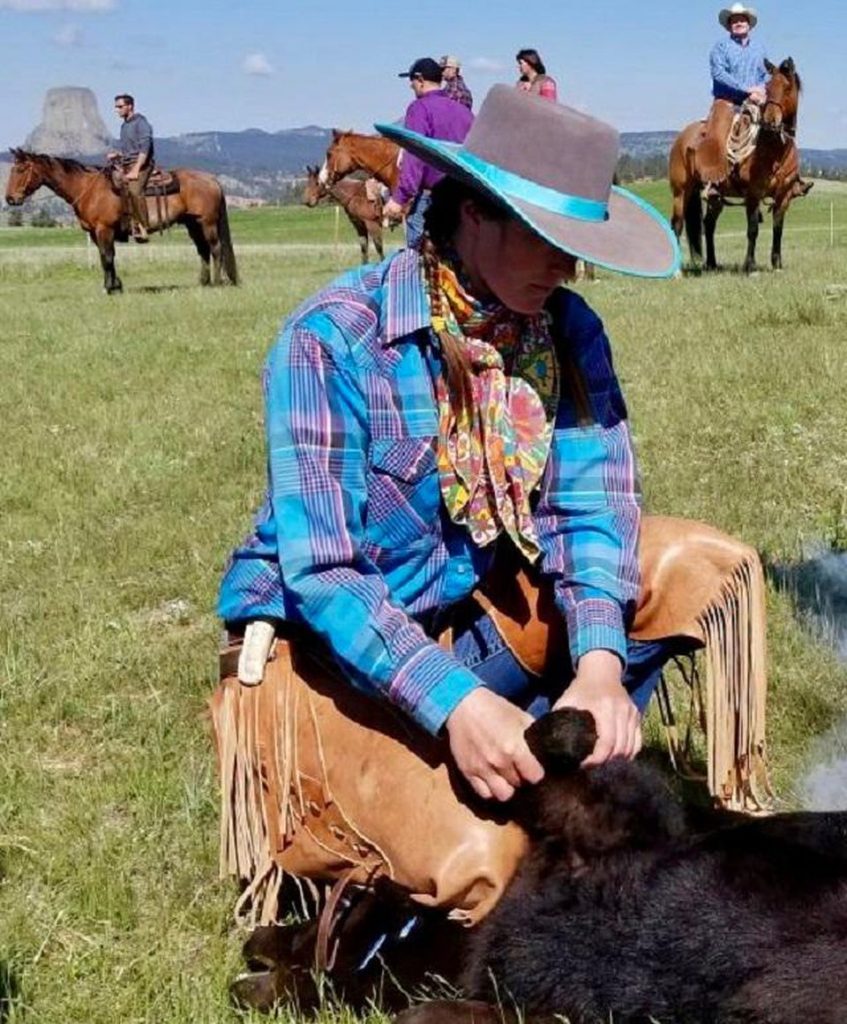
In many ways, Wyoming Senator Ogden Driskill is an unlikely candidate to be leading the blockchain revolution in his home state. His family have been ranchers since the early 1800s, and “delivered cattle to both sides of the Civil War,” as he put it in a recent interview with Forbes. His grandchildren are the eighth generation of Driskills to live in the shadow of Devils Tower, America’s first national monument, and in 2015 he registered 5,000 acres of his family’s land, called Campstool Ranch, for an agricultural conservation easement designed to protect its wildlife and open spaces in perpetuity.
But in other ways the senator, who earlier this year introduced a series of sweeping bills designed to recognize crypto-assets on a blockchain and more, is the perfect leader. Family members have been entrepreneurs for as long as they’ve been ranchers, having founded what is believed to be the oldest operating hotel in Texas, appropriately named the Driskill Hotel, in 1868. After trailing cattle from Texas to Cheyenne, Wyoming, in 1868 his family bought Campstool Ranch and has called it home since 1910. The ranch is now a 10,000-acre commodity farm, managing 600 cow-calf pairs (1,200 heads of cattle), 30 bulls, 20 horses, sheep, goats and even “a handful of buffalo,” as he put it.
The problem is, Driskill’s style of ranching is expensive. Unlike more factory-style farms that tightly pack cattle in pens and feed them from a trough, many of the ranches in Wyoming graze their livestock in wide-open spaces and feed them with food grown right there on the open range.
“These cattle have never seen the inside of a building,” he said. “They live outside year-round and live on what mother nature provides: sunshine and grass.” It turns out that while expensive, raising cattle this way is also a commodity in its own right, with many consumers willing to pay a premium for animals that lived their lives outside and ate only natural food. But it’s also a commodity that’s difficult to monetize without giving incontrovertible proof to the end consumer that the cattle and other animals really were raised on a particular ranch, in a particular way and maybe even by a particular rancher.
So Senator Driskill and two other ranchers have joined stealth startup BeefChain, incorporated in Cheyenne, Wyoming, to implement a shared, distributed ledger called a blockchain with the potential to unlock the premium he believes he can charge for beef that is verifiably free range. While still in the earliest stages of development, the senator inaugurated the project on May 15 by tagging 323 calves from his ranch with radio frequency ID (RFID) tags that will someday be inextricably linked to an immutable supply-chain ledger.
“As far as I know this is the first set of blockchain calves in the United States,” said Senator Driskill.
On June 2, Bonita Carlson (pictured above), who runs Persson Ranch, will kick off the next phase of the BeefChain blockchain consortium when she tags 250 calves, followed by Pumpkin Buttes Ranch, the third founding member. With the end goal of connecting the world’s cattle supply chain, the BeefChain website pays homage to the cowboy ancestors of Driskill and many other Wyoming ranchers, describing the group as “Wyoming craft beef pioneers.”
“What the blockchain does is: The tag allows us to download it to a program to actually verify that what’s been done is done correctly and is backed up by multiple layers,” said Driskill. “That will travel through their entire life. When it leaves our ownership and goes to a feed lot that number will carry through with them. They’ll have another set of processes to work through right up to the point in time that they’re killed, and hanging on a slaughter floor. The carcasses will be labeled with the number so they know exactly what they are and where they came from.”
To Driskill, though, the project isn’t just about exploring new territory. He says it costs him on average about $900 to raise a calf, and the current asking price for that calf is about the same amount. While some years are better than others and he does occasionally make a profit, he estimates there’s another $500 to $700 in value added to the calf after it leaves his ranch, some of which he hopes blockchain will help him and other ranchers capture.
To give an idea of the potential scope of the project, 11,400 Wyoming farms last year generated $1.1 billion in cattle sales, making it the 14th-largest producer among U.S. states. This in spite of Wyoming having the smallest population of any state in the U.S. While the state is home to an estimated 579,315 people, there are 2.1 million cattle. In total, the U.S. cattle industry generated $76.6 billion in revenue according to the most recent U.S. agriculture census.
“It’s a wholesale business,” said Driskill. “Which means we’re price takers, not price setters. Really, it’s a pretty brutal business with high assets and low returns.”
With the first batch of RFID chips in place, BeefChain cofounders Rob Jennings and Tony Rose have joined forces with former Morgan Stanley managing director and former president of blockchain startup Symbiont, Caitlin Long, to help organize the next steps.
First on the list, is to select a blockchain. Among the top contender to serve the cattle supply-chain use case is a subset of the technology working on custom “track and trace” solutions, according to Long. For example, German software giant SAP earlier this week announced it’s own track-and-trace solution, and Big Four accounting firm Deloitte’s former blockchain boss is building a solution using Ethereum to track the defense industry supply chain.
